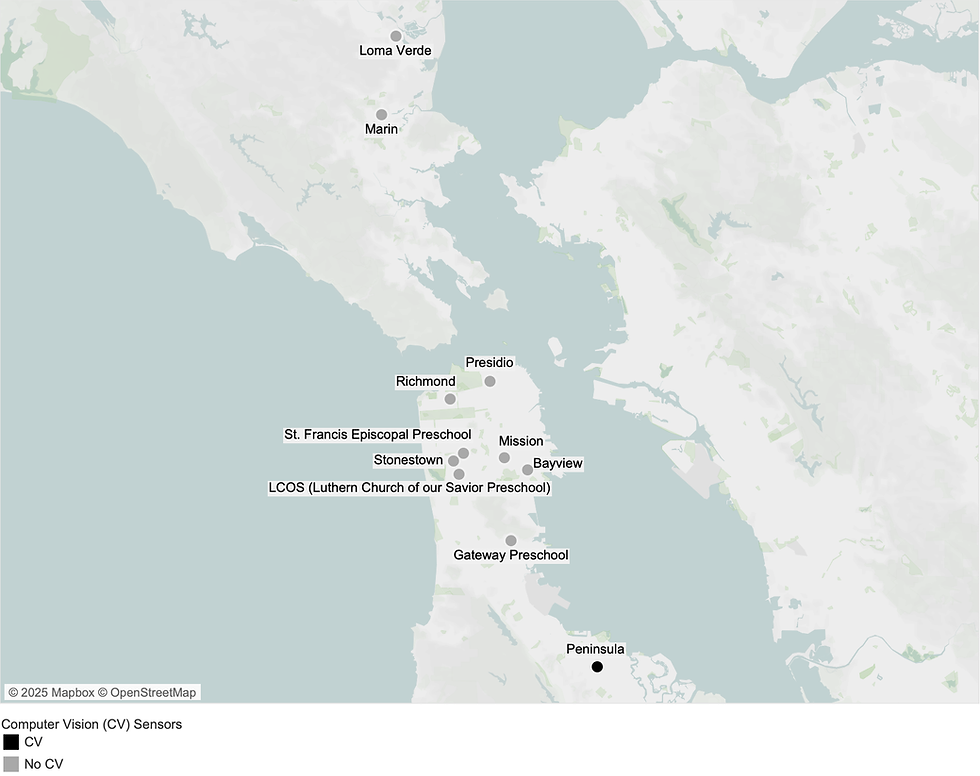Create a Healthy and Sustainable Building Using Spatial Intelligence
- ggtowle
- Dec 12, 2024
- 2 min read
Building healthier, more sustainable spaces is essential, but certifications like LEED or WELL can be costly. Spatial intelligence offers an affordable, data-driven alternative to achieve similar outcomes, enhancing occupant well-being and sustainability without formal certification.
What Is Spatial Intelligence?
Spatial intelligence uses technology, sensors, and analytics to optimize how spaces are used and managed. It provides real-time insights into air quality, energy use, and space utilization, enabling informed decisions tailored to your building's needs.
Achieving Health and Sustainability with Spatial Intelligence

Air Quality
How It Helps: Sensors track pollutants like CO2 and VOCs, enabling efficient HVAC adjustments for cleaner air and lower energy use.
Benefit: Directly improve air quality without costly certification processes.
Energy Efficiency
How It Helps: Monitor temperature and occupancy to optimize heating and cooling systems.
Benefit: Reduce energy costs and emissions without formal audits or models.
Lighting
How It Helps: Optimize natural and artificial lighting based on real-time data.
Benefit: Enhance well-being and reduce energy consumption affordably.
Noise Management
How It Helps: Acoustic sensors identify noisy areas for targeted interventions.
Benefit: Address occupant comfort without complex compliance measures.
Space Utilization
How It Helps: Use analytics to maximize efficiency and avoid underused areas.
Benefit: Align layouts with real needs, avoiding unnecessary construction.
Why Spatial Intelligence is an Alternative to Formal Certifications
Spatial intelligence is scalable, cost-effective, and offers real-time feedback, enabling organizations to focus on specific priorities without the expense of certifications. By starting small, you can implement meaningful changes and expand efforts as resources allow.
Real-World Success
MKThink has used spatial intelligence to help clients improve air quality, reduce energy consumption, and enhance comfort. See MKThink’s efforts in creating the REACHE program with the Department of Defense to develop energy-efficient solutions that uphold cultural values and environmental considerations on Military bases.
Conclusion
Spatial intelligence makes healthy, sustainable buildings accessible to all. By leveraging real-time data, you can create environments that enhance well-being, reduce resource use, and adapt to changing needs. When certifications are out of reach, spatial intelligence provides a smart, scalable solution for impactful improvements.
Chat today with one of our experts about unlocking your building's potential with spatial intelligence. Contact us here.






Comments